When 12-year-old Martin Pistorius complained to his mother of a sore throat and headache, she assumed he had caught a common cold.
However, as the days passed, the typically healthy and active young boy began to show far more serious symptoms, including a complete loss of speech and the ability to control his body.
The doctors had no idea how to diagnose this mystery illness. Martin’s health rapidly declined over the next 18 months, leaving him in a mental coma that medical professionals believed could last his entire life.
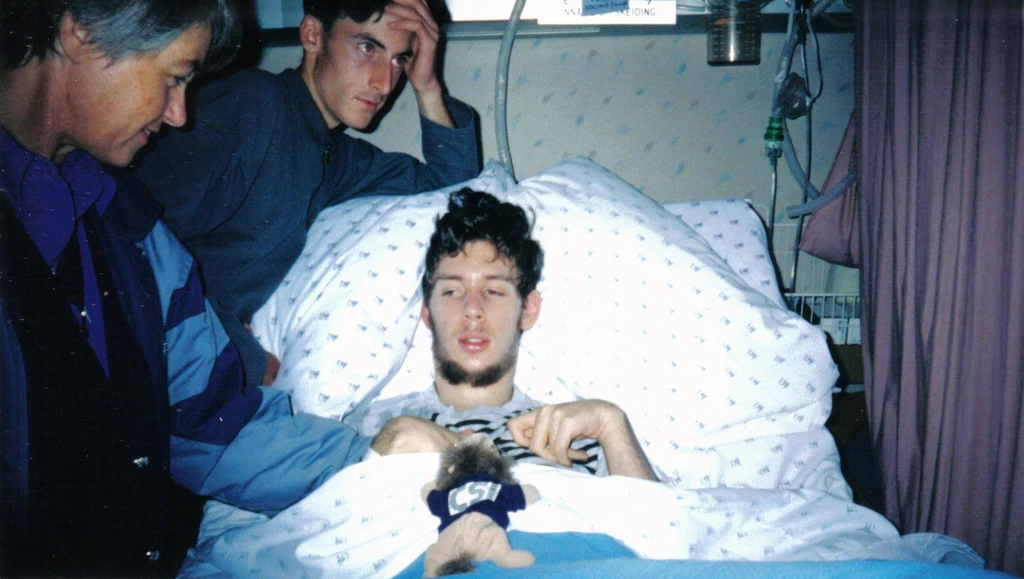

Martin’s parents were told to take him home, keep him comfortable and care for him until he died because it was unlikely he would ever return to his former self.
Over the next decade, Martin lived in a vegetative state, spending time alternating between home and various care facilities.
His family struggled to balance the stress of increasing medical bills and his required constant care, with his mother suffering a mental breakdown and telling her son that he should die.
She was unaware at the time that her son could hear and understand every word that she said, because unbeknownst to everyone around him, Martin’s brain was slowly beginning to heal itself.
He was becoming conscious again, aware of everything that was happening but unable to communicate that he was aware. Martin would nearly give up on his life, losing hope that anyone would realize he was getting better and returning to his former self.
However, there was one nurse who refused to give up on Martin. Her commitment to proving that Martin was conscious and attempting to communicate would change his fate forever.
A Mysterious Illness
As a child, Martin Pistorius was a bright, high-achiever with a passion for tinkering with electronics. Born in 1975 in Johannesburg, South Africa, to his parents, Joan and Rodney, he proclaimed that he would be an electric man when he grew up.
His parents had high hopes for their gifted child. However, when he was just 12 years old, Martin caught a mysterious illness that would change the trajectory of his life forever.
One day in 1988, he came home from school and told his mother that he wasn’t feeling well. He said he had a sore throat and a headache, so his mother Joan assumed he had caught a typical childhood cold – nothing to be concerned about.
He stayed home from school the next day to rest and he would never return to school again.
As each day passed, Martin’s condition seemed to worsen, progressing from the common cold to much more severe symptoms, like losing the ability to communicate or use his body.
There was a time when he stopped being able to speak words altogether and could only murmur sounds, but soon he stopped making any sounds at all.
He also stopped eating and spent the majority of his time sleeping, as his body began to shut down and his mind regressed to the age of an infant.
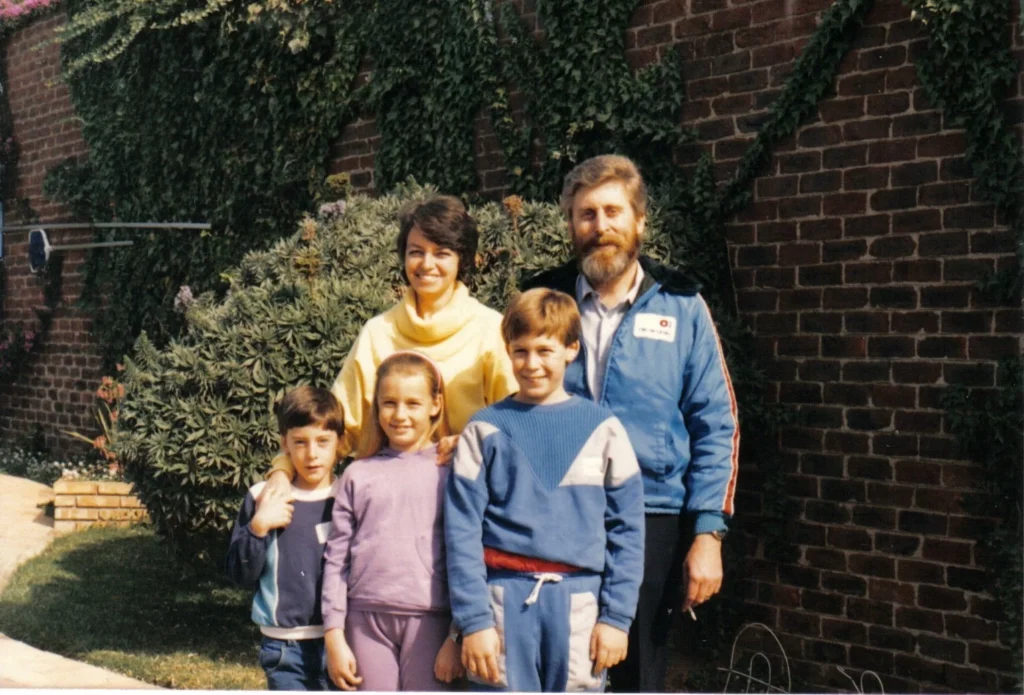
Over the next 18 months, the doctors tried treating him for cryptococcal meningitis and tuberculosis of the brain, but no one knew what was wrong with him and none of the treatments appeared to work.
Martin was diagnosed as being severely mentally disabled at the mental age of a 3-month-old. Medical professionals didn’t believe there was a future for him.
He wouldn’t simply continue to deteriorate as time passed so his parents were encouraged to take him home and keep him comfortable until he died.
Trapped In His Own Body
Martin’s condition was a mental and financial strain on the family and his parents’ marriage. Martin’s every need had to be met by his mother and father or care staff – including all feeding, bathing and dressing.
Martin also needed to be turned in bed every two hours so that he didn’t develop bedsores. It was a full-time job that was only broken up by the few hours during the day that Martin would spend being cared for at a facility.
Rodney and Joan would constantly fight over the stresses of having a medically fragile child who required constant 24-hour care, almost to the point of divorcing. It was so difficult that Martin’s mother had even attempted to take her own life.
To her, it felt as if her son had passed. Physically he was still alive, but the son that she had raised had, in a sense, died and now she was mourning the loss.
During one mental breakdown, in particular, Joan would recall telling Martin right to his face that he “must die”. A statement that she would regret, especially because she was not aware that Martin could hear and understand her.
What no one knew was that miraculously Martin’s brain was slowly beginning to heal itself. He was coming back into a conscious state, becoming aware of his surroundings and what people were doing and saying to him.
Martin would describe this process as seeing the world in a shade of grey and out of focus. As his brain healed and his mental clarity came back, the colors of the world returned and things came into focus.
He would later recall living through major life events, like 9/11, however, he was unable to speak with anyone about what was happening.
Unfortunately, his body was not healing along with his brain – so while he desperately tried to tell his family that he was regaining consciousness, it wasn’t physically possible. While his loved ones continued to speak to him, he had no way of answering them.
A decade would pass and as Martin struggled with being trapped inside his own body he also began to lose hope, believing that no one would hear him, help him or love him.
He was terrified of dying alone in a care home without anyone realizing that he was conscious. This put him into a severe state of depression that made him no longer want to be alive.
The world around him continued to spin. His family tried to regain a sense of normalcy by having Martin spend time at care facilities so that they could vacation or simply get a break from the full-time care he required.
Sadly, these facilities were hell for Martin, as he was mentally, physically and sexually abused by the staff. He reported being hit, pinched and intentionally dropped while in their charge.
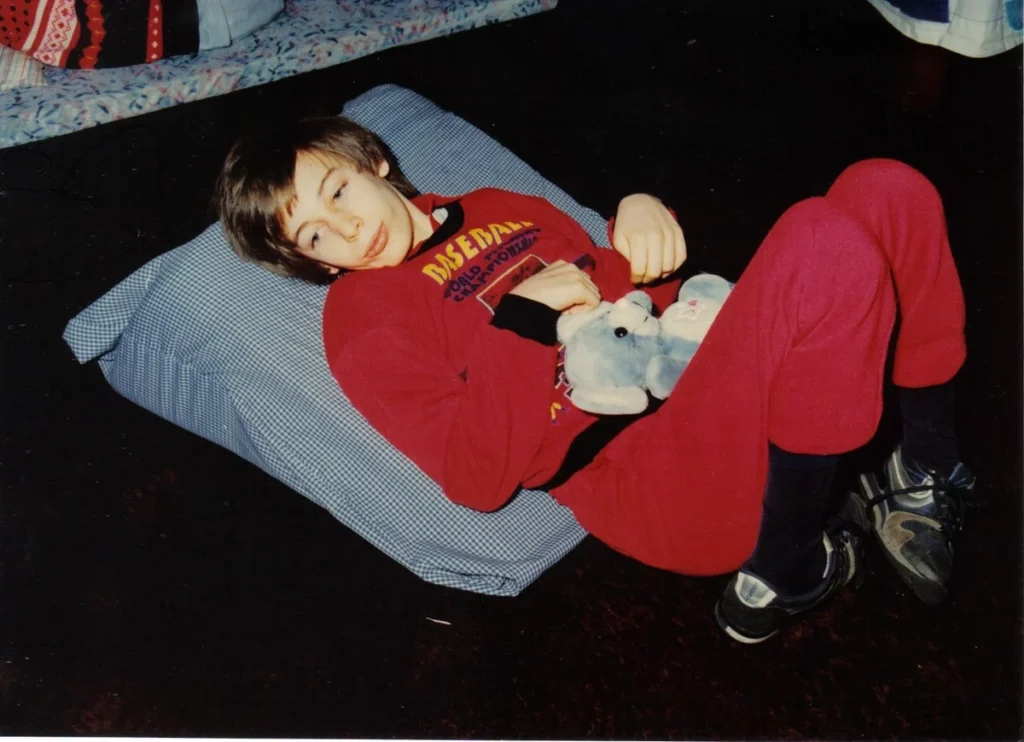
He was consciously aware of everything that was happening to him during the abuse but was physically unable to tell anyone, making him a perfect victim.
However, it was at one of these care facilities where Martin would meet a nurse, named Virna van der Walt, who would change his life forever. She was a new hire who took notice of small gestures while she was sitting at his bedside.
There was a spark in his eyes as she spoke with him, a look of understanding and acknowledgment of what she was saying. This nurse felt as if Martin was more aware than doctors believed and she was dedicated to proving it.
Martin and this nurse formed their own kind of language involving eye movements and hand squeezing. This was proof that Martin was trying to communicate and the nurse pushed his family to have his brain tested again.
A Life Reclaimed
It was during this test that Martin was finally able to show his medical team and family that he was back in his own head and body.
Though doctors still had no idea what the initial diagnosis was or what was now happening to him, after spending 14 years in institutions, Martin’s brain had healed parts of itself.
Thankfully, the nurse in charge of his care had noticed the movements he was making with his eyes and hands, while others believed it to be nothing more than spasms. It was his way of trying to get their attention and she was the first one to listen.
Speaking of this nurse, Martin told Today.com,
“She was the catalyst who changed everything. Had it not been for her, I would probably either be dead or forgotten in a care home somewhere.”
It would not be an easy road ahead. Martin had to re-learn everything from language to movement, but he was out of the vegetative state that doctors said he would be in forever.
He was able to learn how to drive himself in a wheelchair and communicate with a special computer that speaks for him. Sadly, he has no memories of his childhood.
Everything that he knows has been pieced together through photos he has been shown and stories his family has told him. He lost many years of his life which he is now trying to make up for.
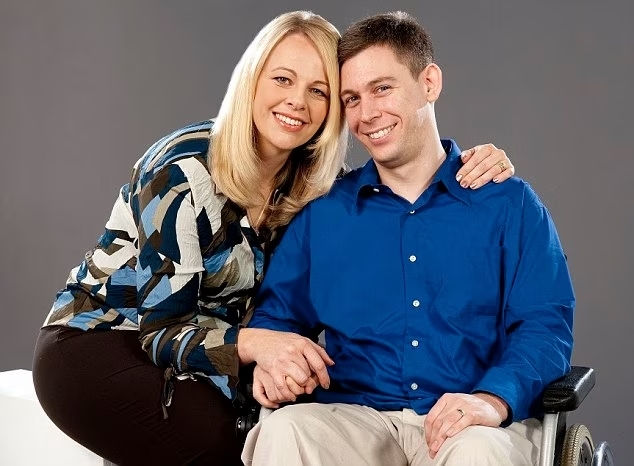
Those dark thoughts that Martin had been trapped with, that he might never be loved and would die alone, would disappear when he met his wife, Joanna.
Today, Martin is a loving husband and proud father of two, who enjoys spending time with friends and family in Britain, where he now lives.
He works as a computer scientist and web developer and has also written a best-selling book about his life, called Ghost Boy, detailing his traumatic experience of growing up with locked-in syndrome.





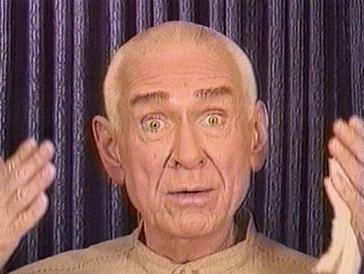
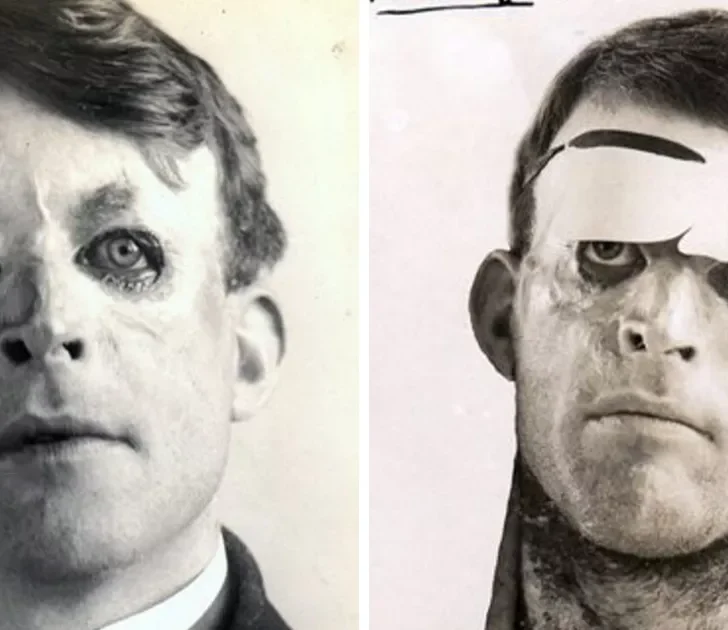
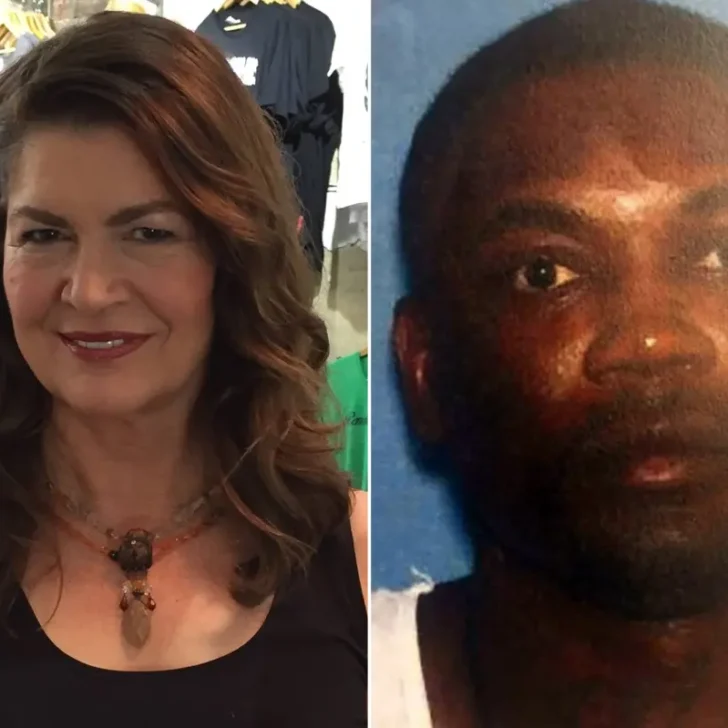

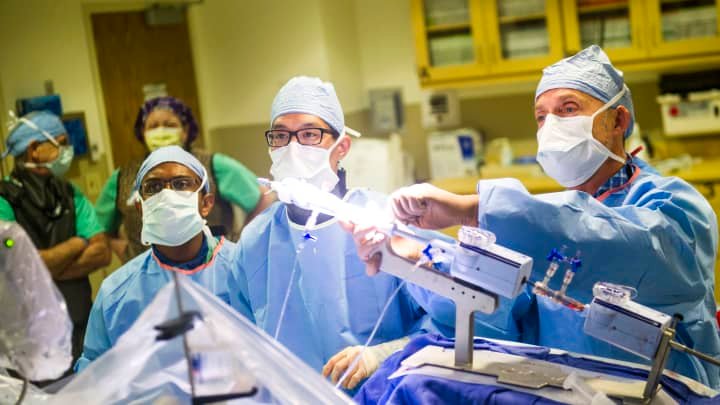
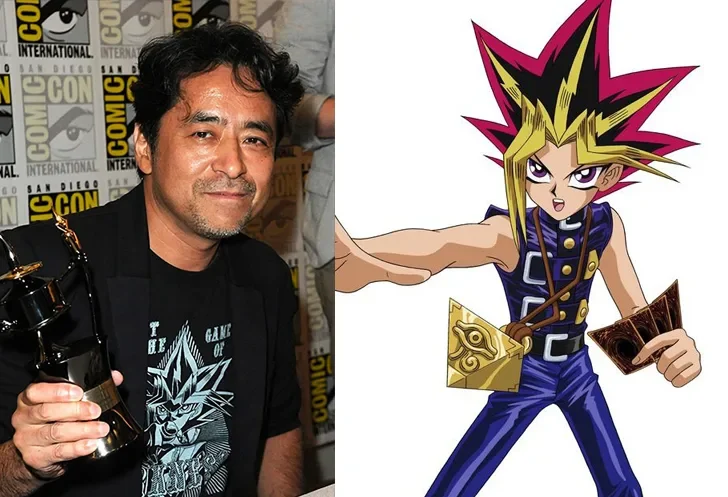
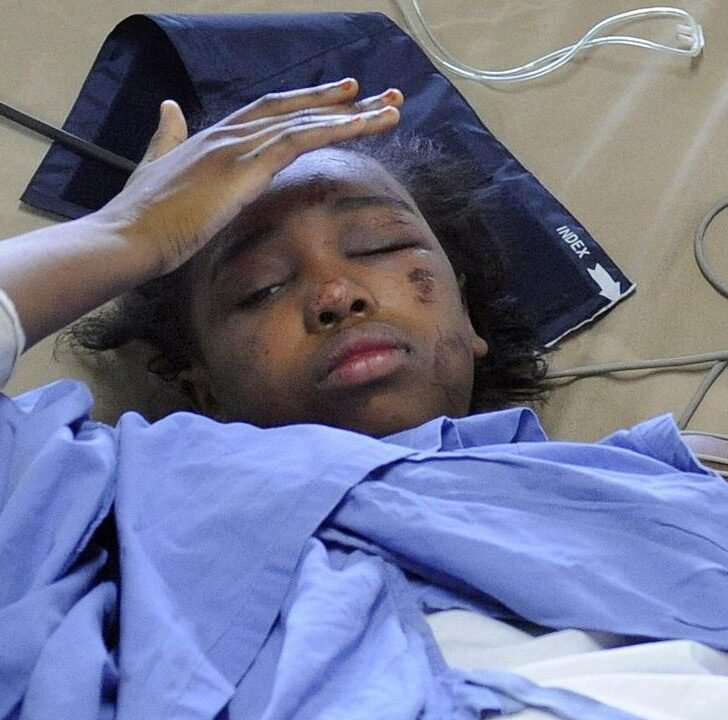

Leave a comment